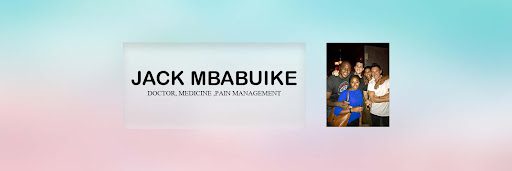Getting accepted to medical school is a major challenge. With the right approach, students can increase their chances of success. Dr. JeanJacques “Jack” Mbabuike graduated from the prestigious NYU Grossman School of Medicine and will share some key insights for students.
“The best time to start preparing for med school and a career in medicine was yesterday. The second best time is today,” says Dr. JeanJacques Mbabuike. “That might sound cliché, but an early start will pay dividends not just in school, but also in practice.
Medical school is designed to help doctors succeed. Excelling in med school doesn’t guarantee that a doctor will excel. However, it’s a big step in the right direction. The habits and skills learned before and during medical training will likely pay off later. Students don’t need to wait for med school to start preparing.
Many aspiring students like to watch movies and TV shows regarding medicine. This can be inspiring, but keep in mind, reality does not always match up with fiction. This is true both in terms of the personal aspects, such as relationships between doctors and others and in a technical sense. Fictional doctors in a TV show might throw around terminology, for example, but sometimes it’s misused.
Whether in a TV show, volunteering, or wherever else, those who aspire to work in medicine would do well to jot down medical terms they hear. Then, they can look up the terms later to understand the full context and meaning. This will help clarify things and can prevent mishaps and misunderstandings down the road.
“Doctors use a lot of terminologies, especially when working with other doctors and medical students,” says Dr. JeanJacques Mbabuike. “Studying medical terms and ensuring that you correctly understand them can pay off a lot in medical school and your later career.”
Understanding terms is especially useful because it helps students and young doctors keep up with lectures and conversations. Students who don’t understand the vocabulary during a lecture or residency can quickly fall behind. And once behind, it’s often extremely difficult to catch up.

Dr. JeanJacques Mbabuike Discusses Hands-On Experience
Speaking of residencies and medical environments, it’s smart to spend time in clinical settings before med school starts. In many cases, it’s possible to volunteer in emergency departments and other settings. Likewise, there may be opportunities to volunteer to assist people recovering from serious diseases, like cancer, or facing other challenges.
Volunteering can help build a resume for medical school, but what’s also important is understanding how the environments operate and how individuals react. Some students think they want to work in emergency rooms but later find that the pressure and stress aren’t right for them. Other students might believe that a career in pediatrics would be boring, but then they get exposed to the work and love it.
“As a doctor or other medical professional, you always have a chance to make a difference and positive impact,” says Dr. JeanJacques Mbabuike. “If you want to maximize your impact, what’s most important is finding a setting and field or specialty that you find engaging, and that plays to your strengths.”
Along the way, it’s smart to pay attention to medical terminology and how hospitals or other healthcare providers function. It’s also smart to keep options open and to examine other careers. Some students may find that they don’t want to be a doctor after all. Other students may not get accepted to medical school, especially on their first application. Having backup career options is wise.
“Some of the best hospital administrators are people who thought they wanted to practice as doctors only to realize later that they excelled elsewhere,” says Dr. Jack Mbabuike. “Many physician assistants, who provide crucial hands-on care, could have gone to medical school but found that working as a PA allowed them to focus on what they truly love, namely treating people. I love being a doctor, but there are many other great roles in health care.”
The MCAT Is Still Important
Regarding graduate programs, standardized tests can often make or break an application. Students applying for a med school will have to take the Medical College Admission Test, or MCAT, as it’s usually called.
In the past, test takers were given a numerical score. Now, the test is pass/fail. As such, getting a higher score on the MCAT is not as important as it was in the past. That doesn’t mean that the test is unimportant, however. Even with the recent changes, aspiring students should prepare for the MCAT, and early preparation is advised.
“Standardized tests are a controversial topic in some circles, but for now, if you want to get into med school, you need to pass the MCAT,” says Dr. Mbabuike. “Simply passing the test remains difficult, and it’s a tough test to try to cram for.”
Unfortunately, some students try to cram for the MCAT towards the end of their undergraduate education. This often leads to bad results, and if you don’t pass the MCAT, you won’t get accepted to most med programs. By spacing out preparation, students can reduce the burden of the exam itself.
Further, it’s important to develop good habits, and last-minute cramming typically isn’t the best route for studying. This is true both before and during medical school. Instead, learning to set routines and to study consistently can pay off.
“Few skills are as important and useful as being able to develop positive habits and routines,” says Dr. Jack Mbabuike. “If you can consistently study between, say, the hours of 4 and 8 PM, even when you’re tired or distracted, that’ll pay off when it comes time to focus in med school or clinical studies.”
A career in medicine may not follow strict routines, of course. Students do need to think on their feet and react to changing circumstances. Many doctors aren’t beholden to a schedule, but following a routine and being able to focus on demand can help in many situations. Then, individuals are in a better position to respond when things break down.


































